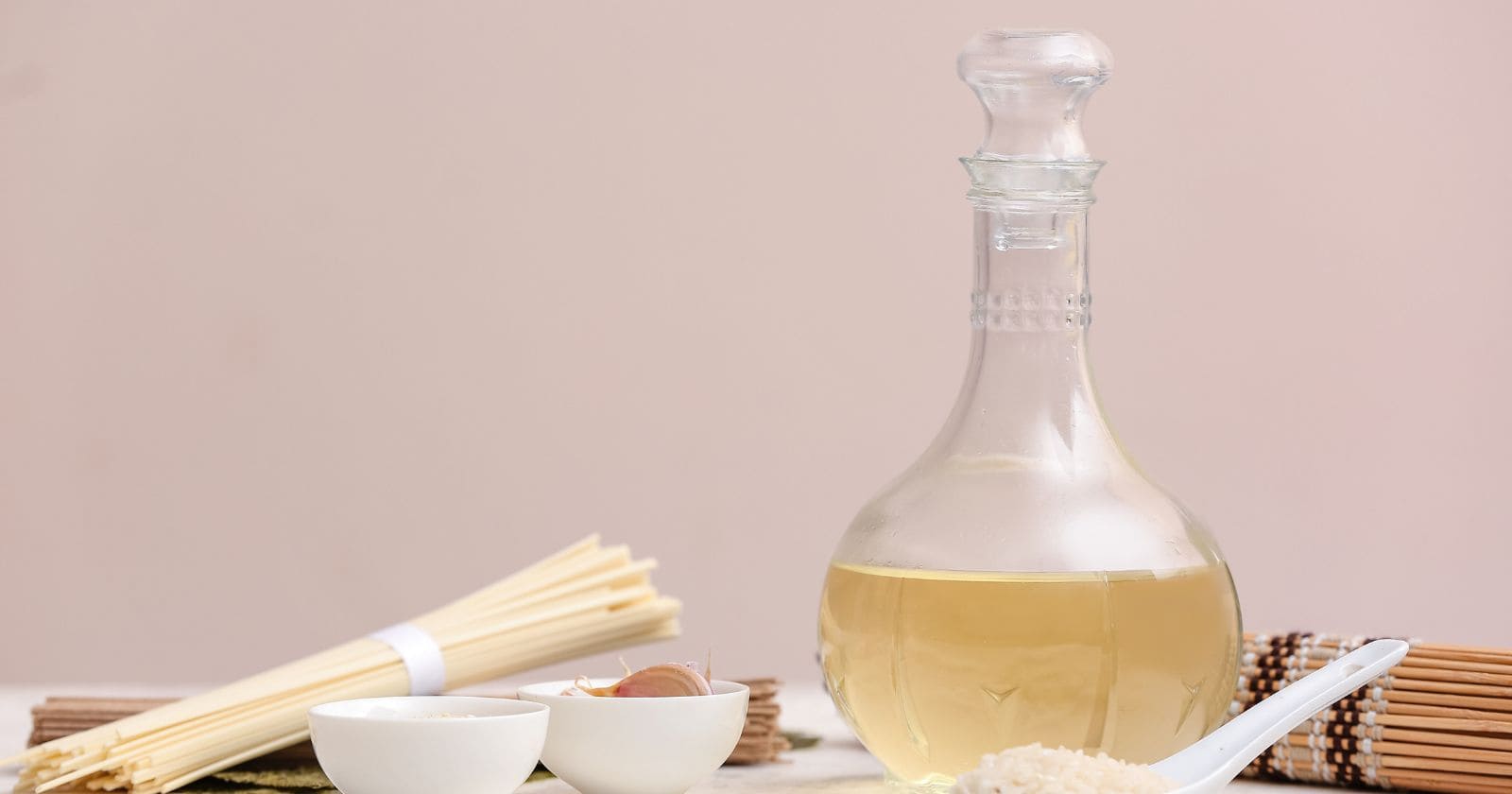Sushi lovers, let’s discuss an important question: is sushi vinegar the same as mirin? I used to think they were interchangeable, but after digging into the details, it turns out these two ingredients are quite different.
While sushi vinegar and mirin are both used in Japanese cuisine, they are not the same thing. Sushi vinegar is a seasoned liquid used to flavor sushi rice, while mirin is an alcoholic rice wine used for cooking.
Here are the key facts:
- Sushi vinegar is a blend of rice vinegar, sugar, and salt that gives sushi rice its bright, tangy flavor. It’s essential for seasoned rice.
- Mirin is a sweet rice wine with an alcohol content around 14%. It brings a subtle sweetness to glazes, dips, and simmered dishes.
- Mirin has a honey-like consistency and a sweet, mild taste. Sushi vinegar is thin, with a sour and slightly sweet flavor.
- The ingredients also differ – sushi vinegar uses vinegar, while mirin contains fermented rice and brewed alcohol.
The bottom line – mirin and sushi vinegar both enhance Japanese food in different ways. Now that you know their unique qualities, you can use them properly for authentic flavor!
Next, we’ll explore making your own sushi vinegar. Stay tuned!
Sushi Vinegar – The Key to Seasoned Rice
First, what exactly is sushi vinegar? It’s a seasoned liquid that gives sushi rice its signature tangy sweetness and subtle saltiness. Properly vinegared rice is crucial for making nigiri, sashimi, and uramaki rolls.
Sushi vinegar consists of:
- Rice vinegar – made from fermented rice or sake lees. Provides acidity.
- Sugar – usually superfine or mirin sugar. Adds sweetness to balance the vinegar.
- Salt – a pinch of pure salt. Draws out flavors.
These components are blended together in specific ratios and then mixed into hot, freshly cooked sushi rice. This allows the rice to absorb the vinegar flavoring.
The result is rice with a glossy sheen, mild sour taste, subtle sweetness, and tender, toothsome texture. The vinegar dressing is essential – plain rice would be too bland for sushi.
Mirin – A Sweet Cooking Wine
So how does mirin differ from sushi vinegar? Mirin is an essential condiment used to add sweetness and umami flavor to Japanese dishes.
Key mirin facts:
- Made from fermented glutinous rice mixed with distilled alcohol and sugar. Can contain 14% alcohol or higher.
- Thick, syrupy texture. Almost resembles corn syrup.
- Sweet taste, though not cloying. More subtle than sugar.
- Used for cooking – sauces, glazes, simmering liquids, marinades. Helps counter salty or bitter flavors.
- Also used as a table condiment for dipping sauces and dressings.
Unlike sushi vinegar, mirin is not a vinegar itself – it’s a rice-based wine product. And it brings sweetness without acidity.
Key Differences Between Sushi Vinegar and Mirin
Let’s recap the main distinctions:
Ingredients
- Sushi vinegar – vinegar, sugar, salt
- Mirin – fermented rice, brewed alcohol, sugar
Taste
- Sushi vinegar – sour, subtly sweet
- Mirin – potent sweetness
Purpose
- Sushi vinegar – seasoning sushi rice
- Mirin – cooking ingredient and condiment
Texture
- Sushi vinegar – thin, watery liquid
- Mirin – thick, viscous syrup
Alcohol Content
- Sushi vinegar – none
- Mirin – 14% or higher
So while both are used in Japanese cooking, sushi vinegar and mirin are definitely not interchangeable!
Buying Guide: How to Shop for Each
Since these two ingredients are so distinct, it’s important to buy the right product for your desired use.
For sushi vinegar:
- Seek seasoned “sushi su” vinegar blends
- Check the label for rice vinegar, sugar, salt
- Avoid mirin-based or unseasoned vinegars
For mirin:
- Look for hon-mirin – real fermented mirin
- Avoid aji-mirin – just corn syrup with flavoring
- Seek a minimum 14% alcohol content
- Expect a thick, syrupy texture
With the right products, you can now use them properly in your cooking!
Using Sushi Vinegar and Mirin in Your Kitchen
Here are some tips for putting each ingredient to work:
Sushi Vinegar
- Season hot sushi rice as soon as it’s cooked
- Mix in with a slicing motion rather than stirring
- Add other ingredients like sesame seeds or ginger
- Use in rice salads and bowls to add flavor
Mirin
- Brush on fish or meat before broiling or grilling
- Mix into dipping sauces and salad dressings
- Deglaze pans to make flavorful glazes
- Add to simmering broths, daikon radish, eggs
- Sweeten and round out the flavor of teriyaki
Frequently Asked Questions
Can you use mirin instead of rice vinegar for sushi?
No. Mirin is too sweet and does not provide the proper acidity. Always use real rice vinegar.
What vinegars can sub for rice vinegar?
White wine vinegar or champagne vinegar are the best substitutes. Avoid balsamic or other strongly flavored vinegars.
Can I swap in balsamic glaze if I don’t have mirin?
No – balsamic is too acidic and strong tasting. Opt for honey, maple syrup, or sugar reductions instead if no mirin.
Is mirin absolutely necessary for Japanese cooking?
While you can sub other sweeteners, mirin provides the authentic flavor profile. It’s worth seeking out for the best results.
Savor the Flavors of Japanese Cuisine
Hopefully this breakdown gave you a clear understanding of sushi vinegar versus mirin. While both enhance Eastern dishes, they are unique ingredients that aren’t interchangeable.
Next time a recipe calls for one or the other, you can confidently use the proper product thanks to your new knowledge! Both will bring that authentic restaurant quality flavor.
Let me know if you have any other Japanese pantry ingredient questions. I’m always happy to help fellow home cooks master new cuisines.





